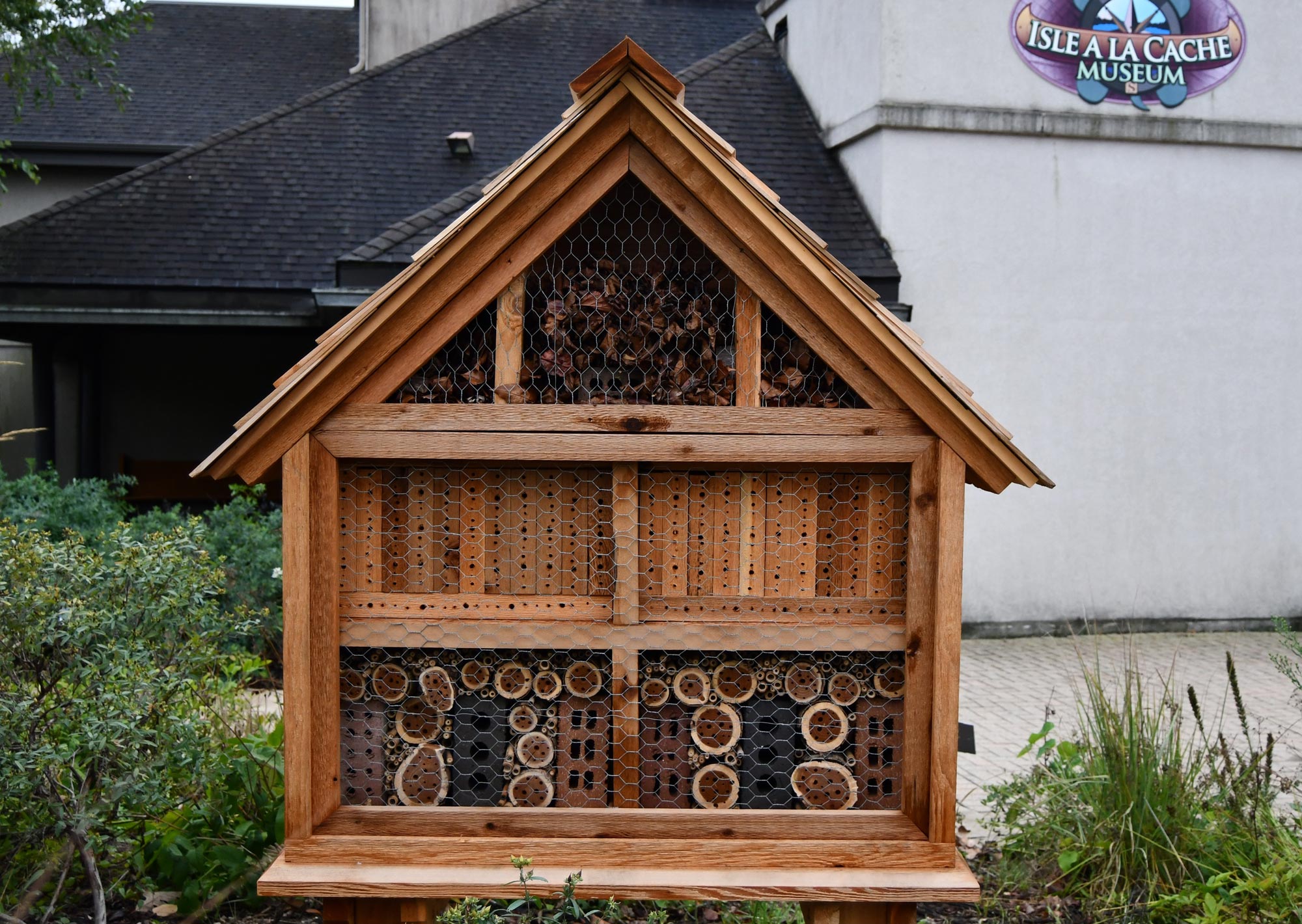Pollinator hotels abuzz with guests thanks to Eagle Scout candidate

Pollinators summering at Isle a la Cache preserve in 2020 encountered more luxurious accommodations than in previous years.
Winged guests were eager to check into three pollinator hotels built by Eagle Scout candidate Luke Lunde, a member of Troop 49 of the Rainbow Council, and his hardworking crew.
The 14-year-old’s project included the design, building and installation, as well as fundraising for all the materials for the one large hotel and two smaller ones.
“The large hotel is visible from the parking lot, on the north side of the building,” said Tina Riley, facility supervisor at Isle a la Cache Museum. “The hotels had almost immediate occupancy and are abuzz with activity, especially on warm, sunny days.”
Pollinator hotels provide shelter for solitary bees such as mason, leafcutter and carder bees. Unlike honeybees, which nest in hives, solitary bees nest in cavities located in either natural or man-made structures. But like their hive-loving counterparts, solitary bees are important pollinators. Female solitary bees make many trips to collect pollen from nearby flowers for their nests.
Riley said Lunde coordinated the offsite hotel building project as well as two onsite installation days for the hotels.
“His finished projects will not only enhance the local ecosystem, but will be used as teaching tools for the many public and school programs delivered at the museum each year,” Riley said.
The two smaller hotels are located in the terraced pollinator garden in the preserve’s outdoor amphitheater and enhance the native landscape, Riley said.
Jen Guest, an interpretive naturalist at Isle a la Cache, was the liaison who worked with Lunde on the project.
“Luke did an excellent job planning and executing his Eagle Scout project,” she said. “The pollinator hotels were well thought out. He used high quality materials that will last for years. This is a great addition to Isle a la Cache preserve, and it will be appreciated by the many people who visit the site annually.”
Lunde, a freshman at Lincoln-Way West High School and a Manhattan resident, said he chose the pollinator hotel project because it was unique and looked fun to build.
“I have helped on a lot of other Eagle Scout projects, and something like this has not been done," he said. "I wanted to do a project that had a lot of hands-on construction and was going to be utilized for years to come.”
Lunde said he also chose the project because it helps the environment and pollinators, many of which are declining in numbers.
“I learned that due to lack of living space and natural environments, pollinators need a place to nest and reproduce,” he said. “I also learned how vital pollinators are to the environment for crops and plants.”
The Scouts spent 37 hours over six days building and installing the hotels. Lunde was assisted by 14 fellow Scouts, Scout leaders and close friends and family. Now that the project is complete, Lunde said he will finalize his report and present it to leaders in an effort to receive his Eagle Scout rank.
“This project was very labor intensive and very detailed in design,” he said. “I am very proud of how the hotels came together. Not only do they look great, but I am excited that they are going to be functional.”
Pollinator hotels are great additions to any yard or garden, Riley said, and there are many resources to guide you through the process of making your own.
“Luke’s hotels are beautiful examples of these beneficial structures, but smaller ones, made with readily available household and yard items are just as effective,” she said. “We recommend looking for online directions from reputable sources, such as state extension services to create one yourself.”
Both the University of Nebraska and Michigan State University extension services provide information on how to build pollinator hotels and the benefits of helping solitary bees find a nice place to nest.
